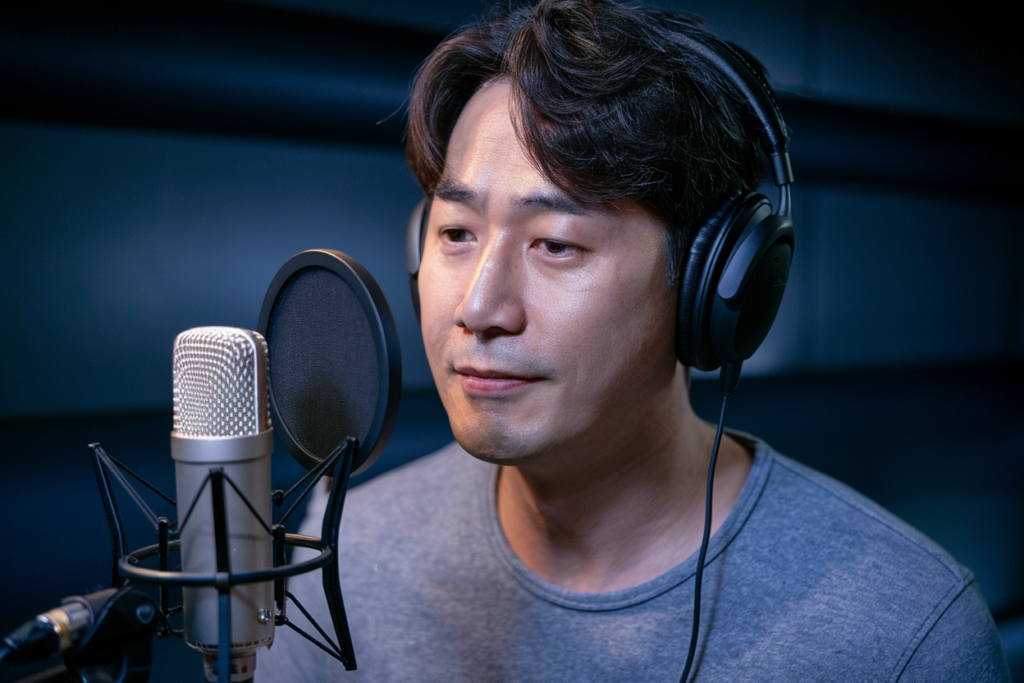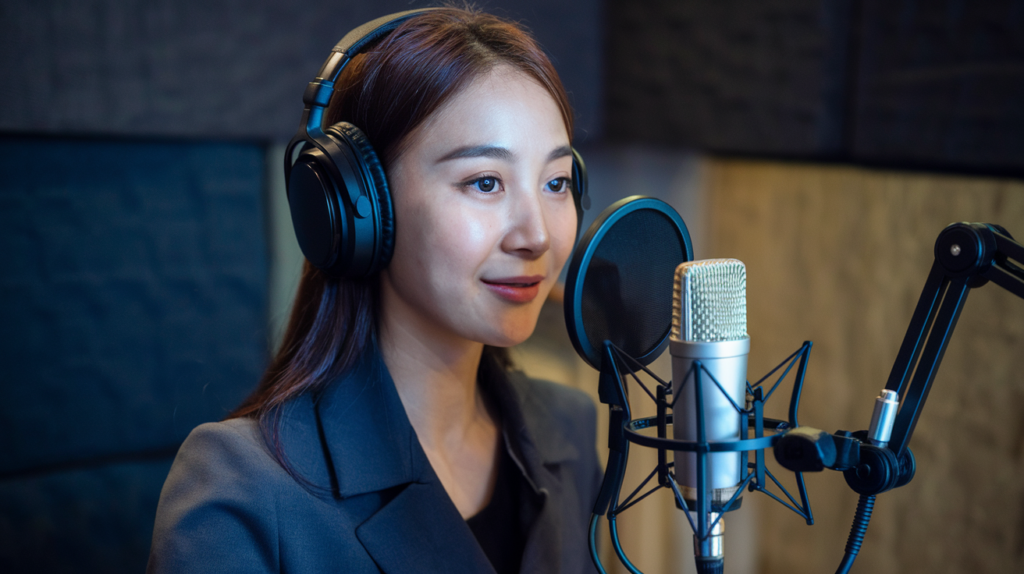Key Takeaways
- Seoul Korean is the standard dialect of South Korea, distinguished by its clear pronunciation and unique intonation patterns that set it apart from regional accents.
- The phonetic features of Seoul Korean include specific vowel sounds and aspirated consonants, enhancing clarity and comprehension for both locals and learners.
- Vocabulary differences highlight the integration of loanwords from global culture, making it essential to familiarize oneself with common expressions used in urban contexts.
- Understanding the contrasts between Seoul Korean and other accents—such as Gyeongsangdo’s sharpness or Jeolla-do’s melodic tone—can improve communication skills and cultural appreciation.
- Seoul Korean plays a significant role in popular culture, influencing media such as K-dramas and K-pop, which further encourages language learners to engage with this accent.
- Mastering Seoul Korean can enhance emotional expression in voice acting, creating deeper connections with audiences through authentic performances.
Ever wondered why Seoul Korean sounds so different from other accents in South Korea? With its unique rhythm and pronunciation, the Seoul dialect stands out among the diverse tapestry of Korean accents. Whether you’re planning a visit or diving into the language, understanding these differences can enhance your experience and communication.
Navigating through various regional accents might feel overwhelming at first. But don’t worry! By grasping the nuances of Seoul Korean compared to other accents, you’ll not only improve your listening skills but also connect more deeply with locals. Let’s explore what makes Seoul’s accent special and how it shapes conversations across this vibrant city.
Overview of Seoul Korean
Seoul Korean stands out as the standard dialect of South Korea, characterized by its clear pronunciation and unique intonation patterns. This accent features a distinct rhythm that often differs from other regional accents, making it easily recognizable.
The phonetics of Seoul Korean include specific vowel sounds and consonant pronunciations that contribute to its clarity. For instance, the pronunciation of certain vowels can vary significantly from those in Gyeongsang or Jeolla dialects. These nuances affect how words are spoken, impacting both comprehension and communication.
Moreover, Seoul Korean incorporates various loanwords and expressions influenced by global culture. You’ll find English terms seamlessly integrated into everyday conversations, reflecting the city’s modern lifestyle. Understanding these elements not only enhances your language skills but also enriches your interactions with locals.
For voice artists seeking to master this accent, focusing on tonal quality is essential. The ability to convey emotion through subtle shifts in pitch sets apart proficient voice actors from others. Whether you’re preparing for a role or creating content tailored for audiences familiar with the Seoul dialect, grasping these intricacies elevates your performance.
Familiarizing yourself with Seoul Korean opens doors to deeper connections within this vibrant city. Engaging with locals using their native accent fosters mutual respect and understanding—key components in building relationships in any cultural context.
Characteristics of Seoul Korean
Seoul Korean stands out as the standard dialect, showcasing a blend of clarity and distinctiveness in its features. Understanding these characteristics enriches your communication and cultural experiences.
Phonetic Features
Phonetic distinctions define Seoul Korean. The accent exhibits clear vowel sounds, with rounded vowels pronounced distinctly. For instance, the “a” sound often appears more open compared to other regions. Consonants also vary; aspirated consonants like “p,” “t,” and “k” are articulated with a stronger breathy quality. This precision creates an intelligible rhythm that enhances comprehension for both locals and language learners.
Tonal qualities play a vital role too. Intonation patterns in Seoul Korean typically rise at the end of questions, making them easily identifiable. As a voice artist or talent, mastering these phonetic elements can elevate your performances, ensuring you convey emotions accurately while resonating with listeners.
Vocabulary Differences
Vocabulary differences further distinguish Seoul Korean from other accents. Unique expressions commonly arise in urban contexts due to exposure to global culture. Words borrowed from English or other languages frequently appear in everyday conversations—terms like “computer” (컴퓨터) or “coffee” (커피) are examples of this integration.
Additionally, specific phrases may carry regional nuances not found elsewhere in Korea. For example, using informal language among friends might differ vastly from formal speech used in professional settings within the city. Familiarity with these vocabulary variations enhances your ability to connect authentically during interactions.
Understanding these characteristics not only improves your listening skills but also fosters deeper engagement when communicating with locals or performing voiceovers that reflect the essence of the Seoul accent.
Comparison with Other Korean Accents
The Seoul Korean accent stands out among South Korea’s various regional accents. Each accent has its own distinctive characteristics that can influence communication and understanding.
Gyeongsangdo Accent
The Gyeongsangdo accent, found in cities like Busan and Daegu, features a sharp intonation pattern. This accent is known for its strong consonants and rising pitch at the end of statements, which can make it sound more vigorous compared to Seoul Korean. For voice artists aiming to capture this essence, mastering the articulation of aspirated sounds is key. The use of local slang also adds depth to conversations, making it essential for anyone engaging with locals to familiarize themselves with these expressions.
Jeolla-do Accent
In contrast, the Jeolla-do accent from regions like Gwangju and Jeonju exhibits a softer rhythm and pronunciation. It often includes elongated vowels and a melodic tone that differs from the sharper Gyeongsangdo style. Voice talent seeking to portray this accent effectively must focus on emulating its unique cadences. Understanding regional idioms enhances authenticity when interacting with speakers or when performing voiceovers that require emotional resonance tied to this dialect.
Gangwon-do Accent
The Gangwon-do accent bridges elements from both the north and south, creating a unique blend that’s identifiable yet distinctively different from Seoul Korean. Its vowel sounds tend to be less rounded than those in Seoul dialects but have their own charm due to their subtle variations. For voice actors looking to represent this region accurately in their work, capturing the nuances of pronunciation will enrich character portrayals and deepen connections with audiences familiar with this dialect.
Each regional accent contributes richness to the Korean language landscape. Familiarizing yourself with these differences not only improves comprehension but also enhances your ability as a voice over artist or performer when conveying emotions authentically through speech.
Impact of Seoul Korean in Popular Culture
Seoul Korean significantly influences popular culture, shaping trends and communication styles both locally and globally. The accent’s clarity and distinctiveness have made it the primary dialect used in television dramas, K-pop songs, and films. This prominence ensures that audiences worldwide engage with the language in a way that’s both accessible and enjoyable.
Seoul Korean’s unique phonetic features contribute to its appeal in media. Characters often exhibit clear pronunciation, making dialogues easy for viewers to understand. For voice artists, mastering these nuances enhances their ability to convey emotions authentically, whether they’re dubbing an animated series or performing a commercial voiceover. The emotional depth that comes from using this accent allows voice talents to connect more deeply with their audience.
The global rise of K-dramas has also led many learners to embrace Seoul Korean as a preferred choice for language study. You might find yourself captivated not just by the storylines but also by how characters articulate their lines. This engagement encourages you to explore the rhythms and cadences of the dialect further.
Moreover, the influence extends beyond entertainment; Seoul Korean serves as a bridge between cultures through social media platforms. Users often adopt phrases or vocabulary from popular shows or songs into everyday conversations, blending traditional expressions with modern vernacular. This dynamic exchange enriches your understanding of cultural contexts while enhancing authenticity in interactions.
As voice artists navigate this landscape, familiarity with Seoul Korean becomes increasingly vital. It equips them with tools necessary for engaging diverse audiences effectively—whether through character voices or narrations that require specific tonal qualities found within this accent.
In essence, recognizing the impact of Seoul Korean on popular culture opens avenues for better communication and connection across different mediums while enriching your experience as both a listener and speaker.
Conclusion
Embracing the nuances of the Seoul Korean accent can significantly enhance your interactions in South Korea. By understanding its distinctive features and how it contrasts with other regional accents, you’ll not only improve your listening skills but also enrich your cultural experiences.
Whether you’re a language learner or a voice artist you’ll find that mastering this accent opens doors to deeper connections with locals and greater appreciation for Korean media. As Seoul continues to influence global culture through music and drama, familiarizing yourself with its unique characteristics will serve you well in navigating both conversations and content.
Frequently Asked Questions
What is the Seoul Korean accent?
The Seoul Korean accent is considered the standard dialect of South Korea, known for its clear pronunciation and unique intonation patterns. It features rounded vowel sounds and aspirated consonants, making it distinct from other regional accents.
How does the Seoul accent differ from other regional accents?
The Seoul accent differs in rhythm and clarity compared to accents like Gyeongsangdo, which has sharper intonations, and Jeolla-do, known for its softer rhythm. Each region has unique phonetic characteristics that influence communication styles.
Why is understanding the Seoul Korean accent important for visitors?
Understanding the Seoul Korean accent helps visitors navigate conversations more effectively. It enhances communication with locals, improves listening skills, and fosters deeper connections while experiencing the culture.
How does popular culture influence the use of the Seoul accent?
Seoul Korean’s clarity makes it prevalent in K-dramas, K-pop songs, and films. This exposure helps spread its usage globally, allowing audiences to connect with cultural trends and language through various media.
What are some key features of the Seoul Korean pronunciation?
Key features include precise vowel-consonant pronunciations contributing to intelligible rhythms and a notable rising intonation at question endings. These elements enhance emotional expression when speaking or performing in this dialect.
Can learning about different accents improve my language skills?
Yes! Learning about different accents improves comprehension and listening abilities. Familiarity with variations like those found in Gyeongsangdo or Jeolla-do helps language learners understand diverse speakers better.
How do loanwords affect the Seoul Korean dialect?
Loanwords from English enrich vocabulary in urban contexts within Seoul Korean. They reflect modern lifestyles and cultural exchanges, making conversations more relatable for younger generations familiar with global trends.
Why should voice artists master the Seoul Korean accent?
Voice artists benefit from mastering the Seoul Korean accent as it allows them to convey emotions authentically across diverse audiences. Its popularity in media enhances their ability to connect emotionally through performance.







